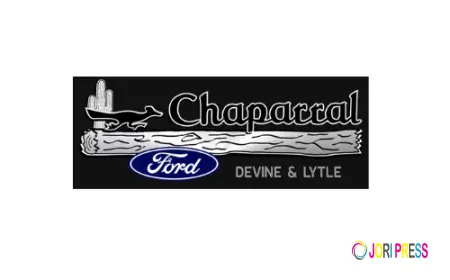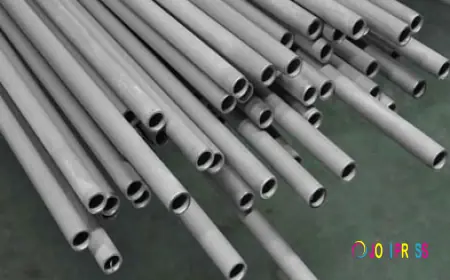Unlocking Innovation: How CNC Machining Prototyping Drives Custom Manufacturing Success
CNC machining prototyping enables rapid, precise product development. Custom CNC services offer tailored solutions, while local CNC manufacturing ensures faster turnaround, expert support, and high-quality parts across industries.

Summary
CNC machining prototyping enables rapid, precise product development. Custom CNC services offer tailored solutions, while local CNC manufacturing ensures faster turnaround, expert support, and high-quality parts across industries.
Introduction
In today’s fast-paced industrial landscape, innovation is the heartbeat of success. Whether you're a startup designing your first product or a well-established manufacturer developing the next big thing, the ability to rapidly and accurately turn ideas into functional prototypes is essential. This is where CNC machining prototyping comes into play—bridging the gap between concept and reality with unmatched precision and speed.
The rise of custom CNC services has revolutionized product development across a wide array of industries, from aerospace and automotive to consumer electronics and medical devices. Thanks to advancements in digital manufacturing, it’s now easier than ever to bring custom parts to life with tight tolerances, high repeatability, and a fast turnaround.
What Is CNC Machining Prototyping?
CNC (Computer Numerical Control) machining is a subtractive manufacturing process that uses computer-controlled tools to remove material from a solid block—typically metal or plastic—to form a part. CNC machining prototyping refers specifically to using this technology to create working models or proof-of-concept parts during the early stages of product development.
These prototypes are often used to test:
-
Design functionality and fit
-
Material performance
-
Manufacturability
-
User feedback and ergonomic testing
Because CNC machining offers high accuracy (often within microns), it allows engineers and designers to validate their ideas with real, testable components before committing to mass production.
Advantages of CNC Machining for Prototyping
1. Speed and Turnaround
Traditional prototyping methods, like casting or molding, often involve creating complex tooling or molds, which can take weeks or even months. CNC machining, by contrast, can produce a high-fidelity prototype in just a few days—sometimes even overnight.
2. Precision and Consistency
When you’re developing a part that requires tight tolerances—such as aerospace components or medical devices—precision is critical. CNC machines operate with extreme accuracy, ensuring that every dimension matches your CAD model perfectly.
3. Wide Material Selection
CNC machining can handle a wide range of materials including aluminum, stainless steel, titanium, and various plastics. This gives product developers flexibility to test different materials based on performance, weight, and cost.
4. Cost-Efficient Iterations
Because there's no need for custom tooling, it's much easier and cheaper to revise your prototype. If a design flaw is discovered during testing, you can tweak your CAD model and get a new version machined quickly—without blowing your budget.
Why Choose Custom CNC Services?
Custom CNC services are ideal for businesses and entrepreneurs who need precision parts tailored to unique specifications. These services are not limited to prototyping—they’re also used for small-batch production, part replacement, and even full-scale manufacturing.
Some benefits of choosing a custom CNC partner include:
• Tailored Solutions
Whether you need a one-off prototype or 100 units for a limited product run, custom CNC providers can adjust to your volume needs and offer specific machining processes, such as 3-axis, 4-axis, or even 5-axis machining.
• Expertise and Support
Many custom CNC services providers offer design consultation, helping you optimize your parts for manufacturability and performance. This can be invaluable, especially if you’re unfamiliar with design-for-manufacture (DFM) principles.
• Quality Assurance
Reliable custom CNC shops provide inspection reports, tolerance verification, and quality checks to ensure each part meets your exact standards. This level of quality control is crucial, especially in regulated industries like healthcare and aviation.
How to Find CNC Manufacturing Near Me
If you’re searching online for CNC manufacturing near me, you’re not alone. Local CNC machining shops offer several benefits, especially for prototyping and low-volume production.
• Faster Communication
Working with a local manufacturer means you can visit the shop, have face-to-face meetings, and more easily discuss design tweaks. It also simplifies logistics—no need to worry about international shipping delays or customs issues.
• Quicker Lead Times
A local CNC shop can often deliver parts faster than an overseas provider. This is critical when you're iterating prototypes or trying to meet tight deadlines.
• Supporting Local Economy
Choosing a nearby CNC service helps support local businesses and keeps jobs within your community.
To find the right provider near you, consider:
-
Reading online reviews
-
Checking their certifications (e.g., ISO 9001)
-
Reviewing their portfolio of past work
-
Visiting the shop (if possible) to assess their capabilities
Real-World Applications of CNC Prototyping
• Aerospace
In aerospace, parts must endure extreme conditions. CNC machining allows for high-strength metal parts that can be prototyped and tested rigorously before mass production.
• Automotive
Car manufacturers and aftermarket modders use CNC prototyping to test parts like gear housings, suspension components, and even interior fittings before launching full production.
• Medical Devices
From surgical tools to custom implants, CNC-machined prototypes help ensure that devices meet stringent safety standards before they go to clinical trials or FDA approval stages.
• Consumer Products
Startups and small product developers rely on CNC machining for everything from headphone casings to electric bike components, enabling them to launch quickly and scale efficiently.
Conclusion
CNC machining prototyping is more than just a technical process—it’s a strategic tool that empowers businesses to innovate rapidly, iterate affordably, and bring better products to market faster. By working with custom CNC services, you gain access to expert craftsmanship, flexible production options, and the kind of quality that mass manufacturing often lacks.
Whether you're developing a new medical device, customizing parts for an electric vehicle, or designing consumer electronics, the value of precision prototyping cannot be overstated. And with more local providers available than ever, a quick search for CNC manufacturing near me could be the first step in turning your vision into a reality.
FAQ
Q1: What is CNC machining prototyping?
A: CNC machining prototyping is the process of creating physical, functional models of parts or products using computer-controlled machining tools. It helps test fit, form, and function before mass production.
Q2: Why should I choose custom CNC services over standard machining?
A: Custom CNC services offer tailored solutions for unique designs, tight tolerances, and specific materials. They’re ideal for prototypes, small-batch production, or specialized parts not found off-the-shelf.
Q3: How do I find reliable CNC manufacturing near me?
A: Search online for local CNC shops, check customer reviews, request sample work or a facility visit, and verify certifications like ISO 9001 to ensure quality and reliability.
Q4: What materials can be used in CNC machining?
A: Common materials include aluminum, steel, brass, titanium, and plastics like ABS, POM, and polycarbonate. The right material depends on the part's function, environment, and budget.
Q5: How long does it take to get a CNC prototype made?
A: Turnaround time varies but typically ranges from 1 to 7 days, depending on complexity, material availability, and shop workload. Local providers may offer even faster delivery.
Q6: How accurate is CNC machining for prototypes?
A: CNC machining offers extremely high precision, often within ±0.001 inches (±0.025 mm), making it ideal for prototypes that require tight tolerances and exact specifications.
What's Your Reaction?
 Like
0
Like
0
 Dislike
0
Dislike
0
 Love
0
Love
0
 Funny
0
Funny
0
 Angry
0
Angry
0
 Sad
0
Sad
0
 Wow
0
Wow
0

















































